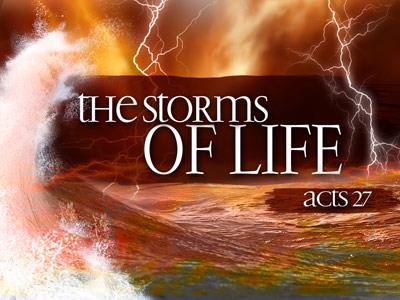-
A Path Through The Deep Waters Series
Contributed by Paul Dayao on Sep 10, 2025 (message contributor)
Summary: This psalm is a lifeline for the doubting heart, showing that the way through the deep waters of despair is paved by remembering God's mighty acts of salvation.
Introduction: The Dark Night of the Soul
There are times in our walk with God that are not filled with sunshine and easy praise. There are seasons of spiritual darkness, what some have called "the dark night of the soul." It's a time when God feels distant, our prayers feel like they're hitting a brass ceiling, and the Bible's promises feel empty. It’s a lonely, confusing, and frightening place for any believer.
If you have ever been there, or are there now, the Bible has a song for you. Psalm 77 was written from the very heart of that darkness by a man named Asaph. It is one of the most honest and pastorally helpful psalm in the entire Bible.
This psalm is a lifeline. It doesn't offer easy, cliché answers. Instead, it models a powerful, two-step process for finding a path through the deep waters of doubt: first, you articulate your deepest fears to God, and then, you anchor your soul in God's unchanging history.
I. Articulate Your Deepest Fears (vv. 1-9)
The psalm begins with a raw and relentless cry of pain. Asaph shows us that the first step toward healing is brutal honesty with God.
A. The Pain of a Comfortless Soul
The psalmist describes a profound and ceaseless distress. He is crying out day and night, but his soul "refused to be comforted" (v. 2). Have you ever been there? A place where the pain is so deep that well-meaning words of comfort feel hollow or even insulting. Asaph gives us permission to feel this. He doesn't pretend to be okay. He simply tells God, "I am overwhelmed, and I refuse to be comforted."
B. The Anguish of Overwhelming Questions
This deep emotional pain leads him to a crisis of faith, which spills out in a series of six devastating questions that get to the core of every believer's fears:
"Will the Lord cast off for ever?" (Have I been rejected?)
"Will he be favourable no more?" (Is His goodness toward me finished?)
"Is his mercy clean gone for ever?" (Has He run out of grace?)
"Doth his promise fail for evermore?" (Can I no longer trust His Word?)
"Hath God forgotten to be gracious?" (Has the very character of God changed?)
"Hath he in anger shut up his tender mercies?" (Is God now only angry with me?)
Asaph doesn't suppress these terrifying questions. He gives them a voice. He hurls his doubts at the throne of God, which is an act of profound faith in itself. He still believes God is the one to whom he must bring his deepest fears.
II. Anchor Your Soul in God's History (vv. 10-20)
Just when the darkness seems absolute, the psalm makes one of the most powerful pivots in all of Scripture. Asaph makes a conscious choice to change his focus.
A. The Deliberate Pivot of Faith
Verse 10 is the turning point: "And I said, This is my infirmity: but I will remember the years of the right hand of the most High." He essentially does two things. First, he diagnoses his problem: his despair is a result of his own weakness, his "infirmity." He realizes his feelings are not the ultimate reality. Second, he prescribes the cure: "I will remember." This is not a shift in feeling; it is an act of the will. He decides to stop listening to his feelings and start preaching to himself.
B. The Power of Redemptive Memory
He resolves to remember, meditate on, and talk of God's works (vv. 11-12). Where does his memory go? He doesn't remember a time he felt good. He remembers God's greatest act of salvation in his people's history: the Exodus. He remembers God as the one who "by strength redeemedst thy people" (v. 15). He shifts his focus from his internal, emotional chaos to God's external, historical, and unchangeable actions.
C. The Comfort of a Mysterious Path
As he remembers the Exodus, he reflects on a profound truth in verse 19: "Thy way is in the sea, and thy path in the great waters, and thy footsteps are not known." When God led His people through the Red Sea, the path was invisible until the very moment the waters parted. After they crossed, there were no footsteps left on the seafloor to prove where He had walked.
This is our comfort. Even when God feels distant and we can't see His "footsteps" in our current crisis, we can trust the Shepherd who has a proven history of making a mysterious path through impossible waters. His presence is real even when His path is hidden. The psalm ends by reminding us that this awesome, cosmic God is also a tender Shepherd who led His people "like a flock" (v. 20).
Conclusion: Preaching to Yourself
When you are in the dark night of the soul, when God feels distant and your heart is overwhelmed with questions, follow Asaph's path.

 Sermon Central
Sermon Central



